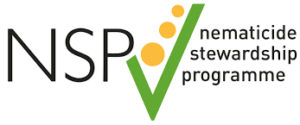The Nematicide Stewardship Programme (NSP) Best Practice Protocol is now part of the Red Tractor audit process. This applies to combinable crops and sugar beet and fresh produce standards.
Agronomist and Red Tractor representative, Simon Alexander, outlines the what potato, sugar beet, carrot and parsnip growers who apply granular nematicides need to do to comply.
“The staff applying granular nematicides must complete relevant training on the NSP Best Practice Protocol. This can be done online, through the nematicide stewardship e-learning module available on the ARTIS website, which includes a printable certificate to show at a Red Tractor inspection,” he says.
“Applicators need to be checked before the planting season begins, and on each day of use during planting. It’s important to record each check, so you have them to hand for inspections.”
Simon explains in each field, a designated area should be used to fill hoppers, so the area can easily be checked for spillages.
“Treated fields should be checked 24 to 48 hours after application, to make sure there haven’t been any negative effects on wildlife,” he adds.
It is also important to ensure applicators can turn off the flow of granules before the row end, which isn’t necessarily the case for applicators that were made before 2017. Engineer Joe Allen explains there are various options for achieving this.
“Applicator shut-off can be achieved manually, using either a cable clutch or an electric clutch.
“Alternatively, it can be achieved using an electric drive, or as part of a precision farming approach,” says Joe.

